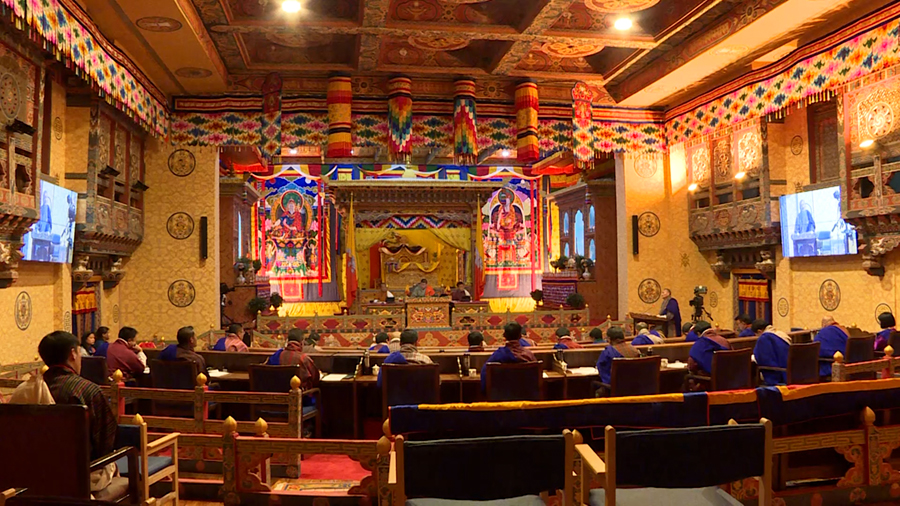
The Good Governance Committee of the National Council presented recommendations to address the issue of increasing gungtong or empty houses and satong or fallow land. The recommendations proposed for priority interventions include balanced regional development and provision of crop and livestock insurance among others. As of April this year, there were around 6,000 gungtongs. The RNR Census 2019 shows that more than 66,000 acres of land are fallow.
According to the Good Governance Committee’s Review Report on satong and gungtong, six eastern districts reported the highest number of gungtong, constituting over 75 per cent of the total empty houses.
In addition, the review report also found that between 2010 and 2019, the total area under cultivation reduced by over 28,000 acres.
In its recommendations, the committee’s chairperson proposed balanced development to reduce satong and gungtong. The committee’s review report states that imbalance in the socio-economic development outcome is evident from the disparities in poverty and migration pattern across the country.
Phuntsho Rapten, the chairperson of National Council’s Good Governance Committee said, “Our first recommendation is to bring in balanced regional development. If we have a balanced development, with all the facilities such as roads, drinking water, irrigation water, education, and hospitals accessible in a region, people will not have to migrate to another place.”
The committee also recommended formulation of a policy on conversion of fallow land. In its review report, the committee stated that increasing dependence on food imports and increasing fallow land can affect the country’s food security.
“There are many fallow land and the production is very low. It increases the import and with the limited money and profit our country has, it is important to have a policy in place to convert the fallow land. It is viable to replicate the fallow land bank policy used by foreign countries where they rent the fallow land for use,” added the committee chairperson.
Besides, the committee suggested allowing flexible use of wetlands to increase food production. The committee proposed allowing cultivation of other crops in wetland, which has no scope for paddy cultivation due to lack of irrigation water and steep slope.
The committee chairperson, “Wetlands which are not usable at all should have flexibility. We are not recommending changing the category of land from wetland to dry land. However, the use of the land can be changed. It will help the country in increasing production and help in import substitution.”
The committee also made seven additional recommendations including initiation of crop and livestock insurance schemes to support farmers, subsidy support to ensure national food security, and eligibility criteria for land exchange.
The recommendations further include programme support such as up scaling agriculture and its production, reviewing overall access to credit in the agriculture sector and review of interest rates, expanding market, and incentivizing agriculture sector to attract youth, especially in rural areas.
According to the committee, due to decrease in land under cultivation over the past decade has led to decline in cereal production and increase in food import. In 2019, the country imported rice worth Nu 2.15bn, which further increased to Nu 3bn last year.
The National Council will deliberate on the recommendations tomorrow.
Sonam Yuden
Edited by Phub Gyem







